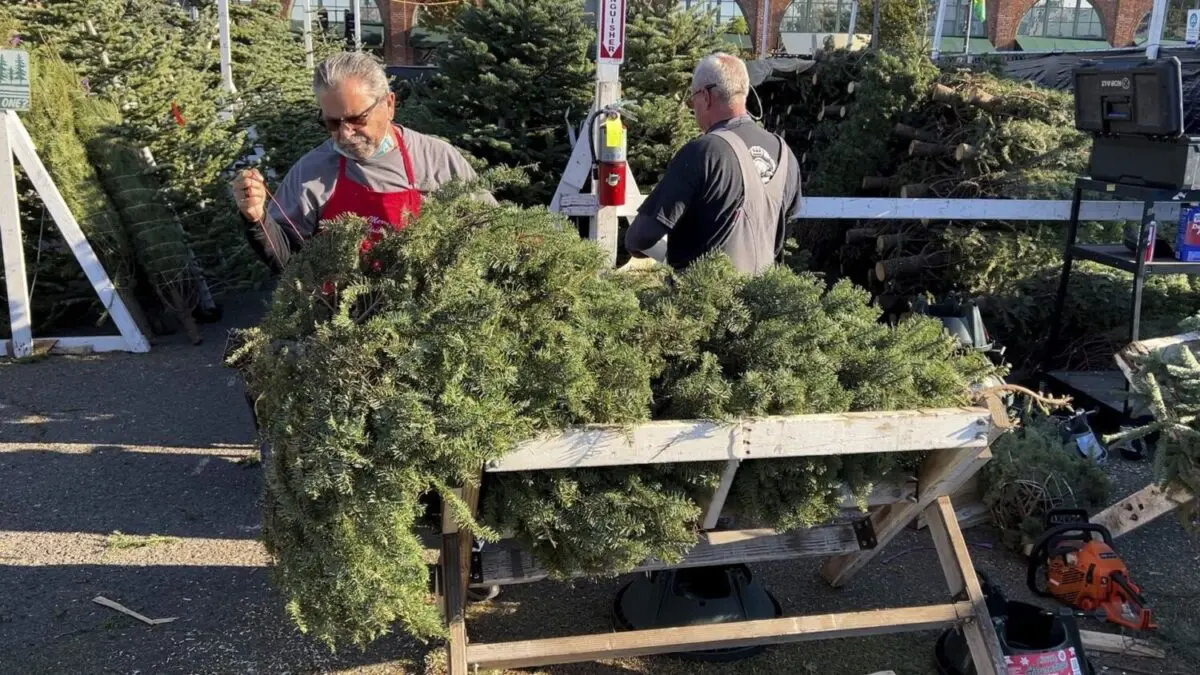Even Christmas trees are not immune to the pandemic deficit and inflation that plague the economy.
Extreme weather and disruption of supply chains have reduced the supply of real and artificial Christmas trees this season. Americans should expect to have fewer choices and pay up to 30 percent more for both types of Christmas trees this Christmas, industry said.
“It’s a double whammy – time and supply problems are really hampering the industry,” said Jamie Warner, executive director of the American Christmas Tree Association. “Nurseries were severely affected by floods, fires, smoke, drought, extreme weather conditions.”
Record heat and wildfires in late June caused significant damage to Christmas tree nurseries in Oregon and Washington, DC, two of the largest areas for growing such trees in the United States.
Warner could not say approximately how many fewer trees there will be this year, but since it takes up to 10 years to grow these trees, the loss of plantations will be felt for many more seasons.
The shortage of truck drivers makes it difficult and more expensive to transport live trees from nurseries to shops and garden centers.
Warner advises, “Shop early. If you see something you like, buy it.”
Crystal River Christmas Tree owner Dale Pine and his niece Stacy Valenzuela have struggled to get enough trees to sell at their Alamida Christmas tree center. Many of its suppliers in Oregon have lost trees in the heatwave.
“The situation seemed quite difficult at the time,” Valenzuela said. “Every Sunday you check on the phone: Hello, do you have anything? If you have, send it to me. It was so difficult to secure the trees this year.”
Crystal River was due to raise prices this year due to rising costs for trees, labor and transport, Valenzuela said.
Alamida resident Ian Steplowski came to the Crystal River Center to buy a California red fir tree with his wife and two young children the day after Thanksgiving.
“There is a shortage of everything, and that, of course, has affected the Christmas trees,” Steplouski said. “I definitely notice that everything is a little more expensive this year.”
Terry Shaffert heard that there are not enough real Christmas trees this year, so for the first time she decided to buy an artificial Christmas tree. Almost a week before Thanksgiving, she went to the Bolsom Hill showroom in Burlington, which sells mostly artificial Christmas trees online.
“I left early because I heard on the news that there would not be enough fresh Christmas trees,” said Shaffert, who lives in the nearby town of San Mateo. Her husband is not happy with the change. “What else can we do? I have to prepare for the future because I love Christmas. I love decorating.”
But the artificial tree industry is also struggling with supplies as port congestion and a lack of truck drivers delay deliveries and increase costs, said Caroline Tuan, Bolsom Hill chief operating officer. The trees sold by the company are about 20 percent more expensive this year, and the variety is less.
“We have to bring our products from our factories (in China), and this is a big challenge,” Tuan said. “All of this is affecting us, which means we have fewer trees to sell in our industry.”
Due to the drought, David Cruz and his wife came to the Bolsom Hill showroom to buy an artificial Christmas tree for the first time this year.
“Given the climate change here in California, this is really the best way,” said Cruz, who lives in Brentwood. “The sooner everyone starts getting artificial Christmas trees, the sooner everyone will be happy with it.”






